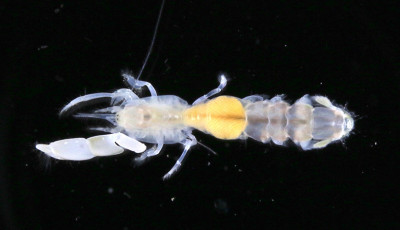2022-09-09 カリフォルニア大学バークレー校(UCB)
幼年期後半と青年期前半の不規則な食物へのアクセスが、成人期の学習、意思決定、ドーパミンニューロンに影響を与えることを示している。
研究者らは、マウスに人間の食糧不足を模倣し、不定期に食糧を供給しながらも安全な体重を維持できるような食糧を確保することに成功した。この食事療法は、マウスが思春期を迎える1週間前(ヒトの幼児期後半に相当)から開始し、20日間、マウスが10代後半に相当するまで続けられた。また、別のマウス群では、欲しいときにいつでも餌を与えられるようにした。そして、変化する環境の中で報酬を探す採食課題を用いて、成体になってからの認知力を検証した。
餌のあるマウスと餌のないマウスは、成体になってから、確実な環境と不確実な環境の両方でテストされ、認知の柔軟性に顕著な違いが見られた。
食料不安は、雌のマウスには明らかに別の悪影響を及ぼした。成長期に食糧不安に陥った雌マウスは、大人になってから自由に食べ物を与えられると太りやすくなる傾向があり、これは食糧不安の中で成長した人間にも見られることである。一方、雄マウスにはそのような傾向は見られなかった。
<関連情報>
- https://news.berkeley.edu/2022/09/09/food-insecurity-has-lasting-impacts-on-the-brains-and-behavior-of-mice/
- https://www.cell.com/current-biology/fulltext/S0960-9822(22)01094-6
幼若期の一過性の食糧不足は、成体体重、認知柔軟性、ドーパミン神経生物学に影響を与える Transient food insecurity during the juvenile-adolescent period affects adult weight, cognitive flexibility, and dopamine neurobiology
Wan Chen Lin,Christine Liu,Polina Kosillo,Lung-Hao Tai,Ezequiel Galarce,Helen S. Bateup,Stephan Lammel,Linda Wilbrecht
Current Biology Published:July 20, 2022
DOI:https://doi.org/10.1016/j.cub.2022.06.089

Highlights
•In males, developmental feeding history affects cognitive flexibility in adulthood
•Feeding history groups respond differently to negative outcomes and uncertainty
•Feeding history affects synapses on dopamine neurons and dopamine release
•In females, developmental feeding history affects adult weight
Summary
A major challenge for neuroscience, public health, and evolutionary biology is to understand the effects of scarcity and uncertainty on the developing brain. Currently, a significant fraction of children and adolescents worldwide experience insecure access to food. The goal of our work was to test in mice whether the transient experience of insecure versus secure access to food during the juvenile-adolescent period produced lasting differences in learning, decision-making, and the dopamine system in adulthood. We manipulated feeding schedules in mice from postnatal day (P)21 to P40 as food insecure or ad libitum and found that when tested in adulthood (after P60), males with different developmental feeding history showed significant differences in multiple metrics of cognitive flexibility in learning and decision-making. Adult females with different developmental feeding history showed no differences in cognitive flexibility but did show significant differences in adult weight. We next applied reinforcement learning models to these behavioral data. The best fit models suggested that in males, developmental feeding history altered how mice updated their behavior after negative outcomes. This effect was sensitive to task context and reward contingencies. Consistent with these results, in males, we found that the two feeding history groups showed significant differences in the AMPAR/NMDAR ratio of excitatory synapses on nucleus-accumbens-projecting midbrain dopamine neurons and evoked dopamine release in dorsal striatal targets. Together, these data show in a rodent model that transient differences in feeding history in the juvenile-adolescent period can have significant impacts on adult weight, learning, decision-making, and dopamine neurobiology.


